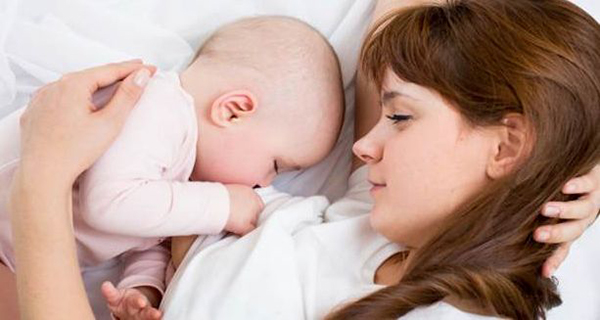 Till date an expectant mother was supposed to take prenatal vitamins along with calcium, iron and folic acid pills that ensured better health and development of the baby. Sadly some essential nutrients missed getting adequate attention in her diet, especially vitamin B 12 that plays an important role in the mother’s and child’s wellbeing during pregnancy. It is now noticed that lack of this vitamin results in low birth weight among newborns. This could further result in diabetes and cardiovascular diseases.
Till date an expectant mother was supposed to take prenatal vitamins along with calcium, iron and folic acid pills that ensured better health and development of the baby. Sadly some essential nutrients missed getting adequate attention in her diet, especially vitamin B 12 that plays an important role in the mother’s and child’s wellbeing during pregnancy. It is now noticed that lack of this vitamin results in low birth weight among newborns. This could further result in diabetes and cardiovascular diseases.
Centre for Cellular and Molecular Biology (CCMB) director Dr Ch Mohan Rao on Tuesday released a research paper by CCMB scientists that has been published in the International Journal of Epidemiology. ‘Apart from being the diabetes capital of the world, India is also the low birth weight capital,’ said the CCMB director describing the major problem in India. ‘The results of the study will help in formulating policies on how to prevent B12 deficiencies in pregnant women,’ he said. Senior principal scientist of CCMB Giriraj R Chandak said the role of folic acid in the prevention of neural tube defects was well established and that it is a current standard practice to improve folate intake in the pre-and periconceptional period. ‘The role of vitamin B12 is just emerging. It influences fetal growth, neural tube development and neurocognitive development,’ Chandak said. Here are seven essentials every pregnant woman should have.
The director said the bacterial blight resistant rice varieties that CCMB developed with the directorate of rice research (DRR) was being distributed to farmers for cultivation as ‘Improve Samba Mahsuri’. The CSIR award for S&T Innovations for Rural Development 2013 would be given to CCMB and DRR.
CCMB also informed that Dr Rakesh Mishra, principal scientist, CCMB had been elected as a fellow of the Indian National Academy of Science, New Delhi. CCMB director Mohan Rao also clarified that a lot of research was taking place in the centre. While during the years 2005-2010, the centre had as many as 130 publications in different journals, the number rose to 173 during 2010-2013.
Here is a list of other essentials every pregnant woman should include in her diet:
Calcium: You have learnt from your school text books that calcium helps in bone and teeth development. More reason why you need it during your pregnancy. Your baby’s calcium requirements need to be met for overall skeletal development. So have that glass full of milk and gorge on milk products like cheese, yoghurt, paneer. ‘If you are lactose intolerant or develop intolerance during your pregnancy it is no reason you should miss on natural sources of calcium and depend on pills. Turn to non-dairy products rich with calcium to make up for the deficiency,’ says Deepshikha Agarwal, a Mumbai based dietitian and sports nutritionist expert. Other good sources include lotus stems, almonds, broccoli and til or sesame seeds. .
Folic acid: Folic acid is essential for foetal brain and spine development. ‘Often women are prescribed pills as doctors believe one might not include enough of it in the diet and hamper foetal well-being,’ informs Deepshika. Though you shouldn’t miss out on your pills, you can supplement them by having tofu or soya paneer, dark green veggies like spinach and fenugreek, bottle gourd, musk melon, peanuts and peanut butter. ‘Many women are allergic or might develop peanut allergy during pregnancy. If you notice any allergic reaction due to it, drop it from your food list. Other food items would still give you enough folic acid if taken adequately,’ says Deepshika.
Iron: It helps to up the haemoglobin levels in you and helps in the organ and cell development of your baby. ‘Remember you need to keep your iron levels up as you are now responsible for your baby’s health and development too,’ says Deepshikha. Have plenty of dark green veggies like spinach, fenugreek, broccoli, dates, raisins, figs, beetroots and apples. ‘Never have iron and calcium-rich foods together as calcium many interface with absorption of iron,’ cautions Deepshika. For instance avoid broccoli salad with curd or milk with a spinach toast.
